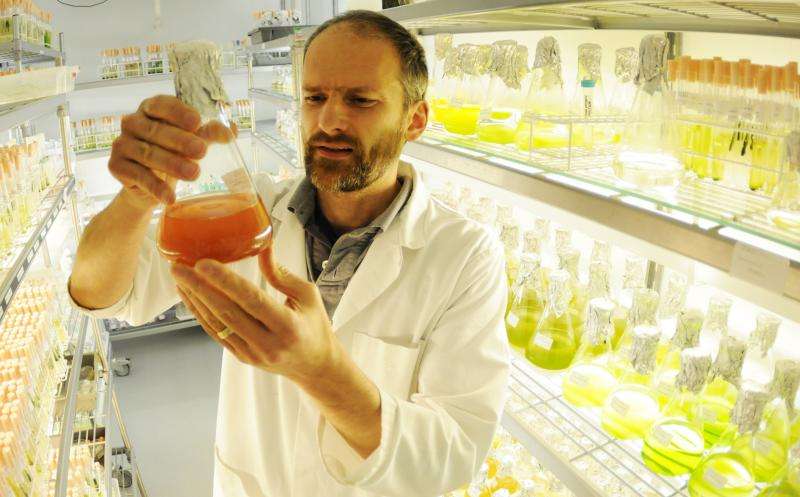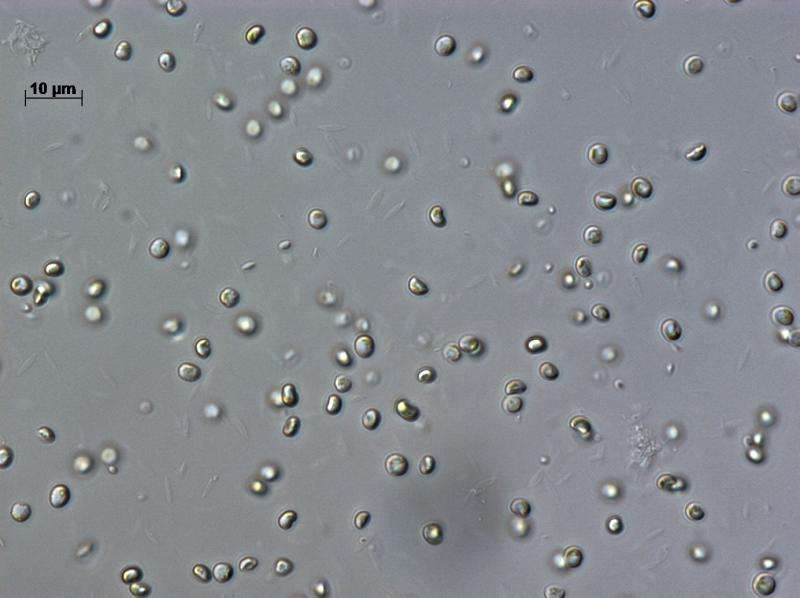Scientists reveal algal oil potential as fuel for the future

Researchers at the Scottish Association for Marine Science (SAMS) have unlocked a treasure chest of 'super-algae' that could provide a previously untapped source of oil.
Using a newly devised technique, scientists examined micro-algae strains in the Culture Collection of Algae and Protozoa (CCAP), an internationally important algal store based at SAMS in Oban, to find out which ocean-based strains had the highest oil content.
The screening revealed two marine strains, Nannochloropis oceanica and Chlorella vulgaris, which had a dry-weight oil content of more than 50 per cent. This makes them ideal sources of biofuel for vehicles and aircraft.
The results of the screening, part of the BioMara project, have been published in Nature's online journal Scientific Reports and are likely to help bring forward research into algae as a source of biodiesel and other biofuels by a number of years.
SAMS scientists have demonstrated that Nannochloropsis, for example, is very efficient at converting nutrients, so it has the perfect combination of high levels of oil and high productivity.
The report's lead author, Dr Stephen Slocombe, SAMS research associate in molecular biology, said: "In order to produce biofuels from micro-algae we will have to generate high yields, so we need to know which strains will produce the most oil.
"While there is a lot of work being done on micro-algae biotechnology – currently around 10,000 researchers across the world – no-one has identified a shortlist of the best performing strains and how their properties could be used."

Micro-algae synthesise high levels of oil, carbohydrates and proteins from sunlight but only a few species are currently grown commercially for health foods, such as Omega-3 oils and pro-Vitamin A.
In addition to strains for making biofuel, the report also signposts those which could be used as sources of food, Omega-3 oils, or aquaculture feed.
This shortlist of 'super-algae' will give researchers a head start when investigating which strains to produce, or genetically engineer, for mass culture.
Dr Slocombe added: "This work paves the way for large scale trials of these strains to uncover their true biotechnological utility in the years to come."
Dr Michele Stanley, Centre Lead for Marine Biotechnology at SAMS, said: "There has been a great deal of interest in the last few years surrounding biofuels from microalgae linked to a very limited number of species. This research generated by the Biomara project not only highlights the potential of marine algae as sources of biofuels but also for a wider set of biotechnology applications."
Provided by Scottish Association for Marine Science (SAMS)




















